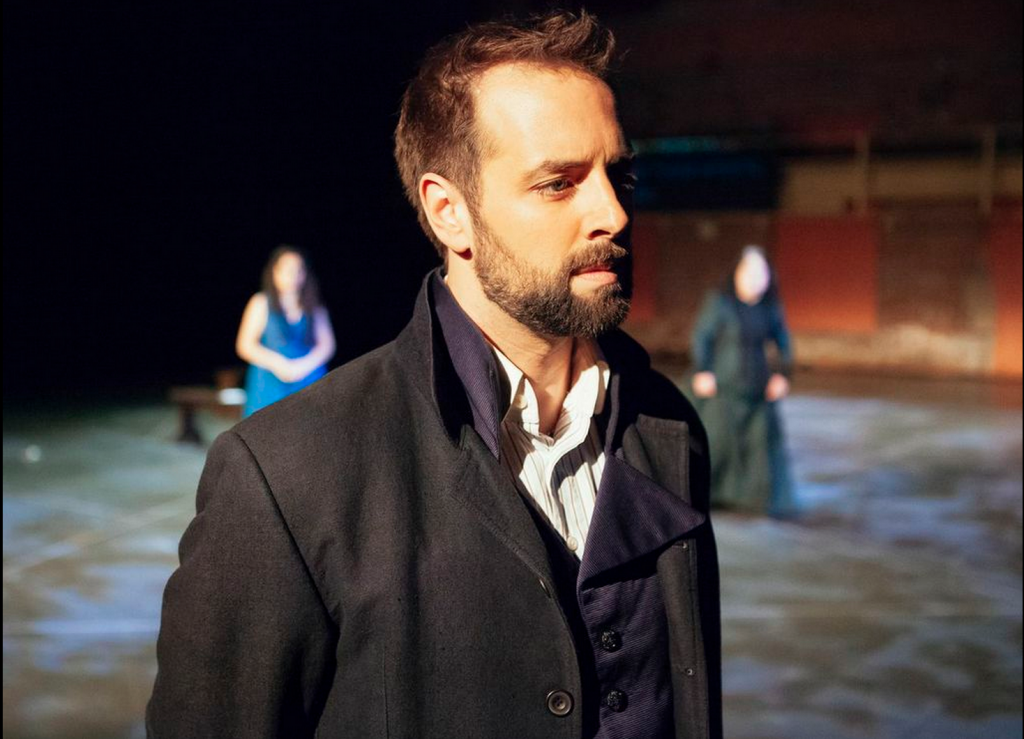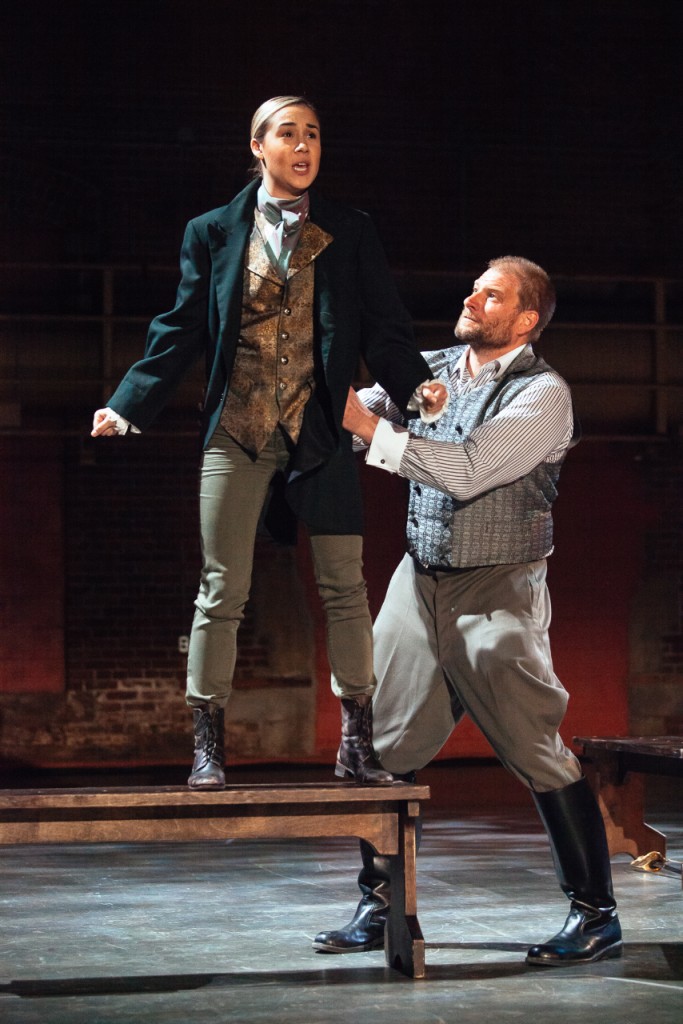
June 21st was one of those perfect straw-hat days. Summer solstice – a breezy bright late afternoon which begs a dinner out on a terrace somewhere cozy, with plenty of Sangria. Afterwards was a blind date with Against the Grain’s al fresco production of Debussy’s Pelléas et Mélisande. Qui sonne bien.
I strolled through the entrance and funnelled into the inner courtyard of the Canadian Opera Company’s office and rehearsal space. Filled with mature trees, a large gazebo, iron gates and arched-brick lined walls, the space was idyllic.
Good gracious, I thought, where has this place been hiding all my life? It was not only a perfect spot to simply sit and soak in, but for an opera setting, its potential was obvious. This could be very interesting, I thought. And it was.
As the sun began to break into that special time between night and day, the opera began to unfold. The music was entirely performed on an upright piano by Julien LeBlanc and a rather frantic looking page turner who, after a 2 ½-hour long production, deserved some kind of award in itself.
Julien LeBlanc’s playing was nuanced and inspired. My only whinge was that it was an upright – an apartment-sized piano whose tone was thin and brittle. Why not a grand piano? It would have made an enormous difference in sound quality, and I think Julien LeBlanc deserved an instrument to match his talent.

But back to the love fest, shall we? AtG’s Pelléas et Mélisande was slight and pensive, with hints of an age where ideas of love and loss mixed with the aching surroundings of forlorn impressionist beauty. The characters wafted in and out of the piazza like ghosts, and the effect was nothing short of magical.
This is a slow-moving opera which Debussy struggled to get right for a long time. Found in a story by Maurice Maeterlinck, it’s characters are set against the mercy of life and destiny. The text was fought over by Gabriel Fauré, Jean Sibelius and Arnold Schoenberg, who all swooped in to set it to music. But Debussy saw an opera in it, stating “The drama of Pelléas which, despite its dream-like atmosphere, contains far more humanity than those so-called ‘real-life documents’, seemed to suit my intentions admirably. In it there is an evocative language whose sensitivity could be extended into music and into the orchestral backcloth.”
The plot circles around a love triangle between Prince Golaud, Mélisande, and Pelléas.
It begins with Prince Golaud, who finds a mysterious young woman, Mélisande, alone and lost in a forest. He marries her, and takes her back to his grandfather’s castle. Mélisande meets Golaud’s younger half-brother Pelléas, and the two start to fall in love, arousing Golaud’s jealousy. Golaud forces his son Yniold, to spy on the couple. Pelléas leaves the castle but arranges to rendezvous with Mélisande and the two confess their love for each other. An eavesdropping Golaud rushes out and sinks a sword into Pelléas. A devastated Mélisande gives birth to a daughter and dies, leaving Golaud alone to obsess about the devastating reality of loving someone who cannot love him back.

I really have to hand it to Artistic Director Joel Ivany, who has taken to the heights of opera with a humble budget. Creativity will beat spectacle every time, and he knows it.
The casting was also a winning combination. Alain Coulombe was perfect in his role as the grandfather Arkel, and Megan Latham carried the role of the grandmother Geneviève, with impressive charisma.
The love triangle played between Étienne Dupuis, Gregory Dahl, and Miriam Khalil was also a slam dunk. In particular Dupuis, who absolutely lived in the role of Pelléas, and Miriam Khalil, who seemed as if she had stepped right out of Monet’s Garden at Sainte-Adresse as Mélisande incarnate. Her signature warm lyrical voice countered the lower male voices to great effect. Gregory Dahl was also astonishing in his portrayal of the antagonist Prince Golaud, a complex role requiring a deep understanding of the philological trauma of someone who has lost their way.
Andrea Núñez’s performance of Golaud’s son Yniold was also very strong. Her interaction with her father was engaging and provided a narrative depth to the tragedy about to unfold before them.
AtG’s Pelléas et Mélisande was perhaps the highlight of the opera season for me, which compared to a very strong season at the COC and elsewhere, says something very important.
Opera is not about spectacle, but the strange alchemy between words and music consumed in the mythical ritual of theatre performance. The singers bring it all to life and this is where the AtG shine brightest. Casting casting casting.
Evidenced by the number of squirrels and birds in attendance, they also approved.
Well-done everyone.
+++
Against the Grain Theatre’s Pelléas et Mélisande closes Wednesday, June 25th, 2014. Tickets and details here.
Michael Vincent
- THE SCOOP | Royal Conservatory’s Dr. Peter Simon Awarded The Order Of Ontario - January 2, 2024
- THE SCOOP | Order of Canada Appointees Announced, Including Big Names From The Arts - December 29, 2023
- Ludwig Van Is Being Acquired By ZoomerMedia - June 12, 2023



